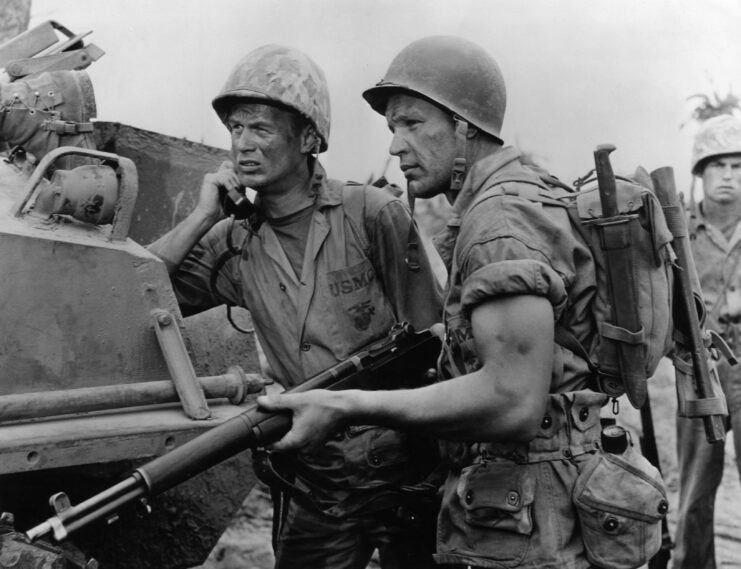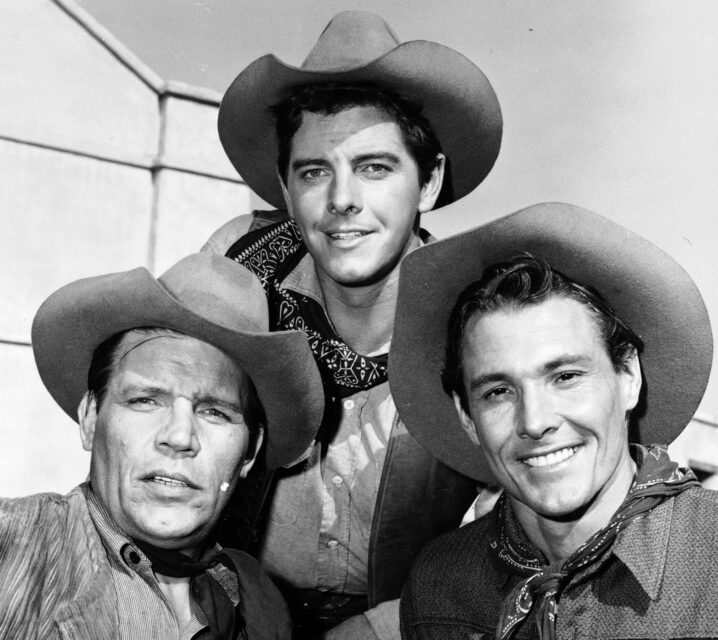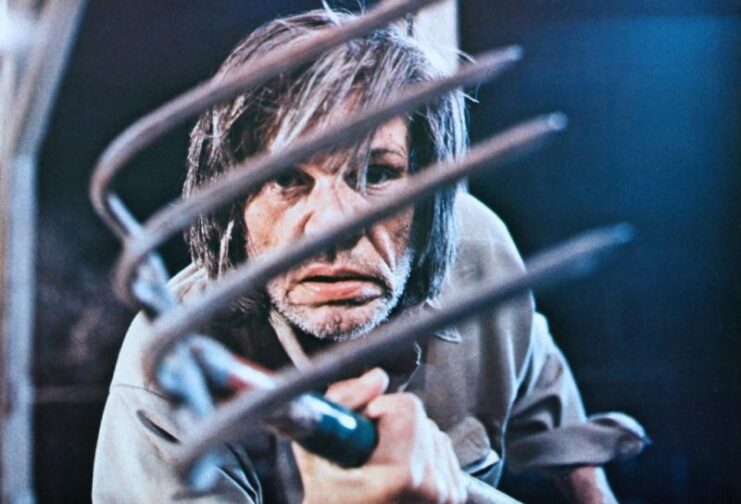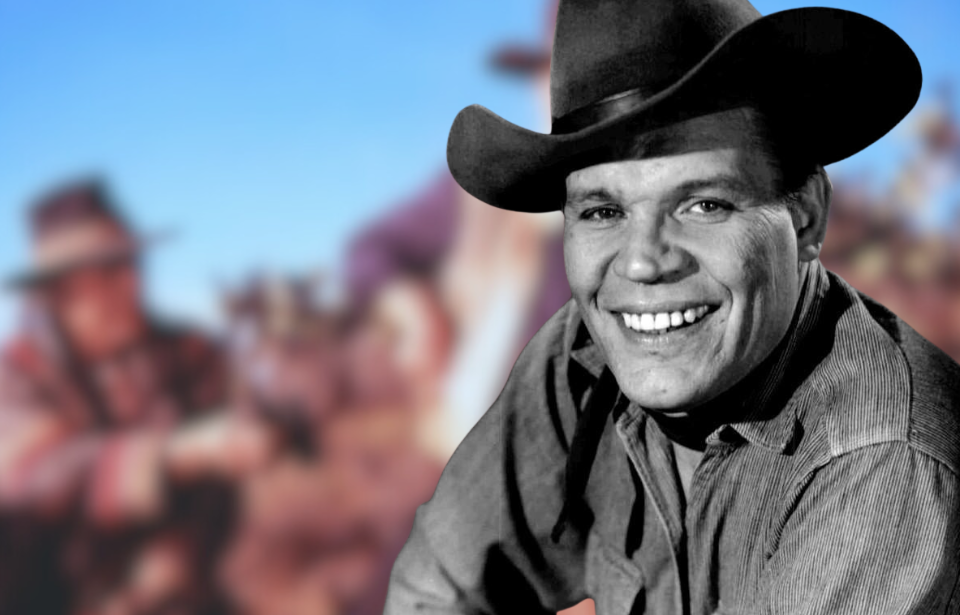When looking back at the stars who dominated the silver screen during the 1950s and ’60s, you’ll find that the majority served in some capacity with the US military. Some saw more action than others, with Western star Neville Brand among those who risked their lives by attacking the enemy head-on, with a complete disregard for his own safety.
Neville Brand was awarded the Silver Star for his service in Europe

Very little is known about Neville Brand’s early life, other than he grew up in Illinois. Following his high school graduation, and knowing he wanted to dedicate his life to the military, the future actor enlisted in the Illinois Army National Guard, becoming a private with F Company, 129th Infantry Regiment.
By March 1941, Brand had transferred to the US Army. After undergoing training at Fort Carson, Colorado, he was shipped to the European Theater with B Company, 331st infantry Regiment, 83rd Infantry Division (Thunderbolt Division). Seeing action in the Rhineland, in Central Europe and in the Ardennes region, Brand and his fellow infantrymen came face-to-face with enemy troops often, with him at one point being shot in the upper arm and almost bleeding to death.
While serving in Germany, Brand was awarded the Silver Star for a particular act of bravery that saw him put the wellbeing of his comrades over his own. On March 1, 1945, he and other infantrymen came across a German-held hunting lodge, with the soldiers inside armed with machine guns. As Brand later told it, “I must have flipped my lid. I decided to go into that lodge.” After gaining access via the rear, he single-handedly dispatched those inside.
Brand wad discharged from the Army in October 1945, having received, among others, the Bronze Star, the Army Occupation Medal, the Good Conduct Medal, the Purple Heart and the Overseas Service Bar. While some reports claim he was the fourth-most decorated soldier of World War II, he denied the assertion on several occasions.
Using the GI Bill to pursue Hollywood aspirations

It was shortly after his discharge that Neville Brand worked with aspiring actor Charlton Heston on a film for the US Army Signal Corps, a project that must have led to him catching the acting bug, as he used the GI Bill to attend the Geller Drama School in Los Angeles. He also moved to New York City’s Greenwich Village to enrol in the American Theatre Wing, which allowed him to begin appearing in off-Broadway productions.
Brand’s first on-screen roles were uncredited, with his first properly credited release being 1950’s D.O.A. Before long, his bulky physique and gruff voice led directors to cast him as tough-guy gangsters and outlaws in features. As his star continued to grow throughout the 1950s, he began to score bigger and more recognizable roles, and it wasn’t long before he became a mainstay on the silver screen.
Among Brand’s most notable roles during this time were Gun Fury (1953), Riot in Cell Block 11 (1954), Fury at Gunsight Pass (1956) and The Three Outlaws (1956), portraying Butch Cassidy in the latter. He also portrayed Mike Gavin in Elvis Presley‘s movie debut, Love Me Tender (1956).
Along with film, Brand was also a mainstay on the small screen, starring in Laredo (1965-67) and making guest appearances on the likes of The Untouchables (1959-63), Bonanza (1959-73), Combat! (1962-67), Rawhide (1959-65), Gunsmoke (1955-75) and Wagon Train (1957-65). He continued to act into the 1980s, with his last credited role being Evils of the Night (1985).
Neville Brand developed PTSD as a result of his wartime service

As a result of his wartime service, Neville Brand developed post-traumatic stress disorder (PTSD), which led to him developing alcoholism. He discussed it in a 1975 interview, saying, “The booze became medicine, man. Suddenly you’re not drinking to get drunk anymore. And the only way you can hit in the morning – I used to call that just getting even – is to grab that jug. I’d have a pint of whiskey in the morning just to make a phone call.”
More from us: Before Becoming a Big-Name Actor, Richard Todd Was a Paratrooper Who Fought at Pegasus Bridge
On April 16, 1992, Brand passed away from emphysema at Sutter General Hospital in Sacramento, California. He was 71 years old. He was cremated following a private funeral service and interred in the Morning Glory Room at East Lawn Memorial Park.
